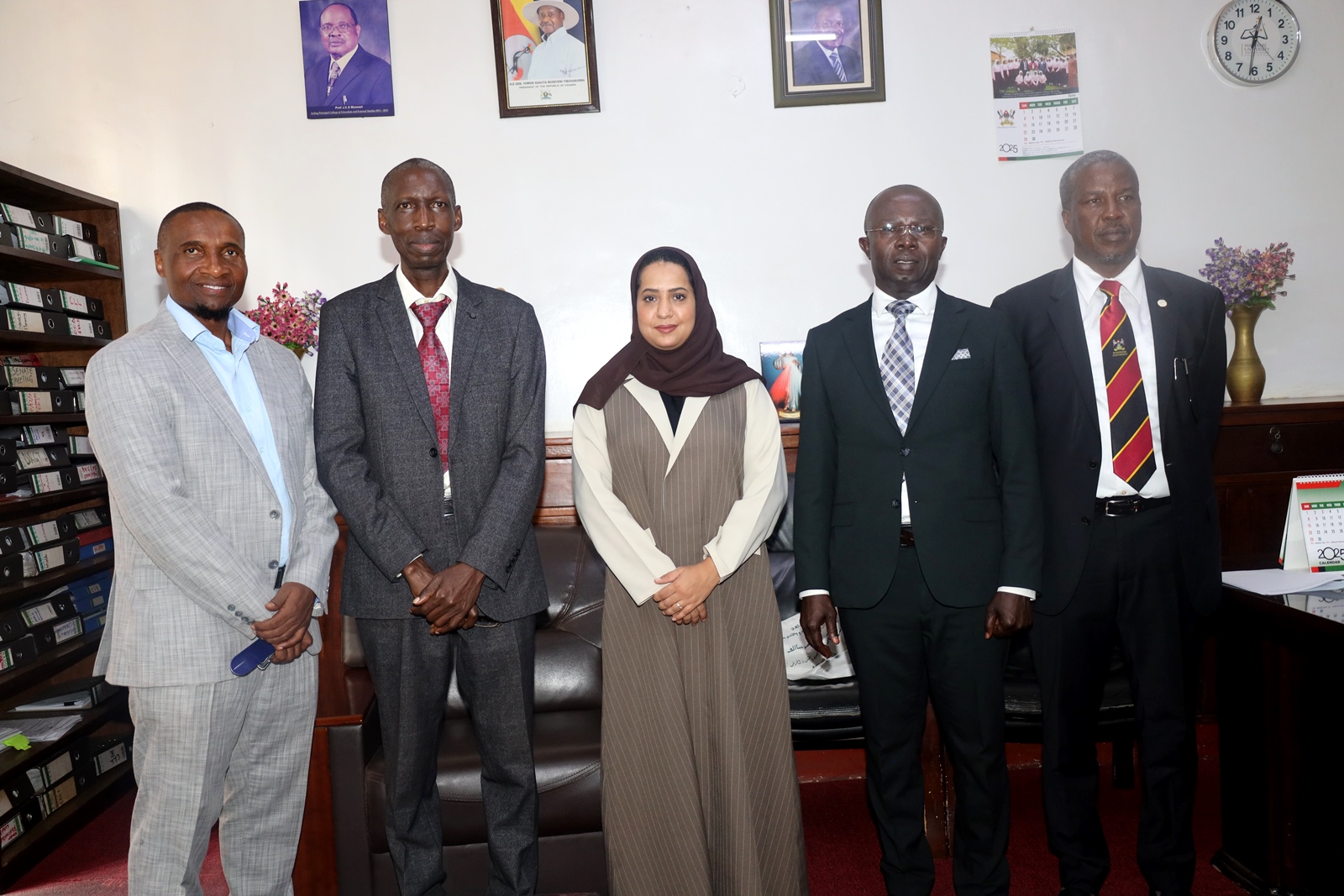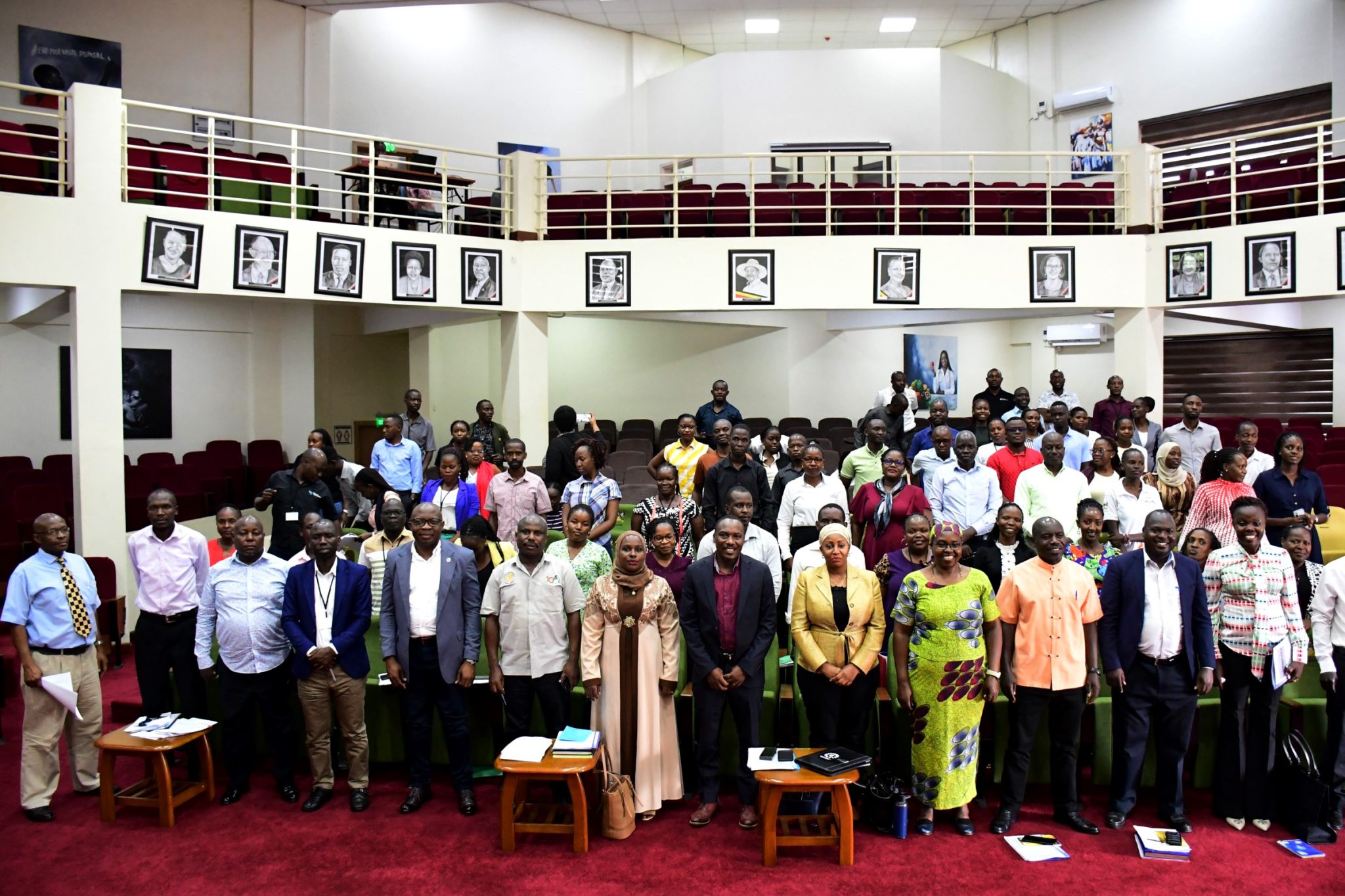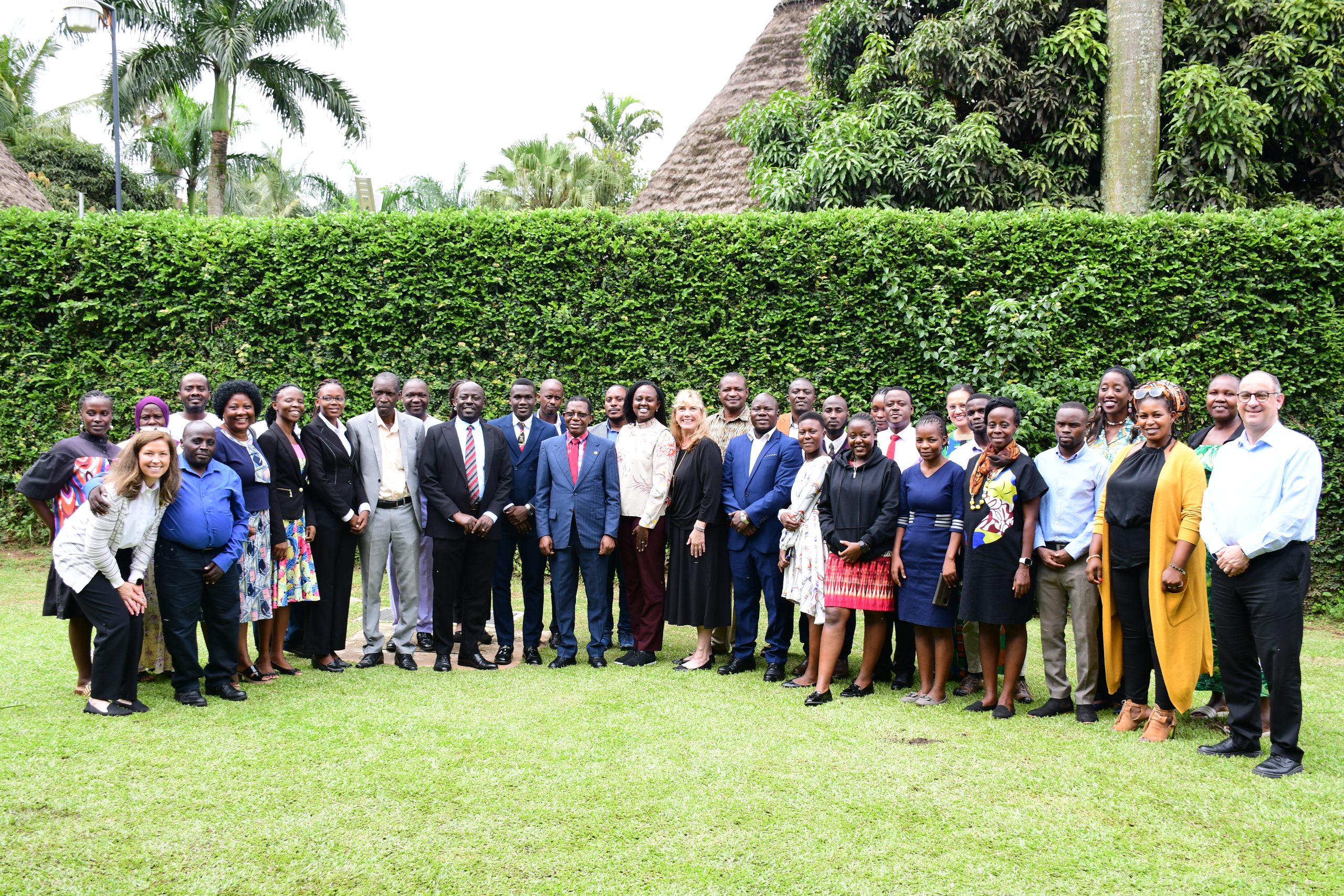On Friday 28th May 2021, Enhancing Behavioural Change of Boda-Boda Riders in Uganda Using Mobile Learning (EBoML) Dissemination was held at CEES. EBoML is a three-year project initially funded for one year by the Government of Uganda through the Makerere University Research and Innovations Fund (Mak-RIF). The goal of EBoML is to professionalise the Boda-Boda industry in Uganda using Mobile Learning (mLearning) for positive behavioural change of Boda-Boda riders. The project is being implemented in partnership with the Ministry of Works and Transport (MoWT), Ministry of Gender, Labour and Social Development (MoGLSD) and Boda-Boda riders from the two pilot districts of Wakiso and Namayingo. “Being a service industry, good or bad hygiene impacts directly on the riders’ lives and those of their customers thereby having an impact on the business” remarked team member, Ms. Lillian Mbabazi from the Department of Performing Arts and Film (PAF) as she presented findings from the Health and Safe-Living Module. Findings revealed that 66% of Boda-Boda riders acquire health information from their fellow riders or friends, 51% from healthcare providers and 50% from family or the mass media. Other riders reported that they secure information from; health outreaches, social media, school or classes, herbalists, the internet and other sources. A number of health issues were reported to impact the lives of Boda-Boda riders. Accidental injury, hygiene and substance abuse had the highest recorded impact at 80%, 44% and 42% respectively. Additionally, intentional injury and violence accounted for 38%, unwanted pregnancy and parenting-28.7%, Sexual health-27% and obesity-11%. Boda-Boda riders reported a number of barriers they faced in accessing healthcare. These, in order of priority included; high costs, long waiting lists, embarrassment, lack of knowledge, long distances to facilities, time constraints and language barrier among others. Furthermore, healthy eating, emergency services and dental services at 53%, 52% and 45% respectively were reported by the riders as aspects of healthcare that lacked sufficient information. Others reported were; mental health, prolonged disease or condition management, education about physical activity, primary health care, substance abuse and treatment, and reproductive health. Boda-Boda riders when not on the move are usually stationed at designated stages. Under personal and workplace hygiene, only 30% of riders reported that they had access to running water for handwashing. Additionally, while 83% of riders admitted to bathing three or more times a week, 6% said they bathed only once a week. On the bright side, 39% of the riders admitted to bathing twice a day. In terms of risky sexual behaviour, whereas 65.7% of the riders reported that they had sex with one to two sexual partners in the past 12 months, 23% had engaged in sex with three or more women in the same period. On an alarming note, 57% of the riders reported that they did not use a condom in the past six months prior to the survey. Engaging with multiple sexual partners is a high-risk sexual behavior especially in the absence of condom use. The researchers therefore sought to find out the number of women impregnated by the riders in the last twelve months. Whereas the majority (53%) reported that they hadn’t impregnated any women in the period, 36% had impregnated one, 6% two, 4% three and 1% four or more. Further examination of the relationship between riders and the women revealed that whereas 35% had impregnated their wives and 5% their girlfriends, disturbingly, 1% had impregnated a student and another 1% a stranger. 4% admitted to impregnating a girl/woman who was neither a wife, nor a girlfriend, nor a student, nor a stranger. The majority (54%) opted not to state their relationship with the woman they impregnated. Transactional sex between Boda-Boda riders and clients who fail to pay cash for their trips has often been talked about but with no figures of its extent. Findings from the EBoML team revealed that whereas 88% of Boda-Boda riders reported that they do not engage in transactional sex, 12% admitted to engaging in the practice. Away from the health and safe-living, the third and final module on Safe-Driving revealed that 63% of Boda-Boda riders sampled had less than five years of riding experience. Nevertheless, 12% admitted to having more than ten years of riding experience and the rest (25%) had six to ten years of experience. Adulthood is a regulatory requirement for operation of motor vehicles because maturity is considered a critical factor for decision making. The project therefore sought to ascertain at what age the riders first operated a motorcycle. Whereas the majority of riders (84.6%) said that they were 18 years and above at the point of first riding, 6.8% admitted to have started riding while still below 18 years of age. 8.6% of respondents said they were more than 30 years of age at their first riding attempt.
- HOME
- About CEES
- Schools
- Research
- Academics
- Application Procedures
- Academic Programs
- Graduate Programs
- PhDs by Coursework (Doctor of Philosophy in Educational Management)
- PhDs by Research
- Master of Education (Early Childhood Education & Development)
- Master of Education (Educational Management))
- Master of Education in Curriculum Studies
- Master of Education (Language and Literature Education))
- Master of Education (Social Science and Humanities Education))
- Master Of Education (Science Education)
- Master Of Adult & Community Education
- Master Of Instructional Design & Technology
- Master Of Education (Educational Policy & Planning)
- Master Of Higher Education (Leadership & Management)
- Master Of Higher Education (Research & Innovation)
- Master Of Higher Education (Teaching & Learning)
- Postgraduate Diploma in Education
- Postgraduate Diploma in Medical Education
- Undergraduate Programs
- Higher Diploma
- Graduate Programs
- News & Events
- Directory




